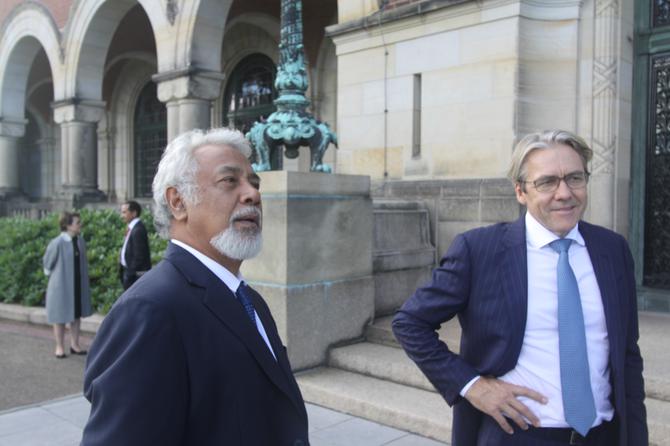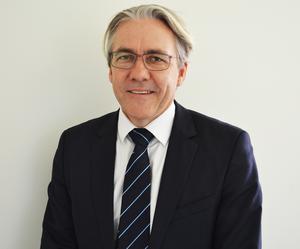Expectation: To take over the family business in Burnie and become a welder like his father and grandfather.
Reality: First in the extended family to go to university. He is now a partner at global law firm DLA Piper and is the Asia Pacific Head of its Energy Sector.
After finishing high school in Burnie, Stephen Webb decided to buck the family trend and head south to Hobart and attend the University of Tasmania.
Now he and his firm officially represent the Timor-Leste Government and are in the final stages of negotiating with Australia a maritime boundary, which also includes a process to extract and share Timor Sea oil and gas deposits worth an estimated $40 billion. (The Permanent Court of Arbitration in The Hague announced in early September that the parties had reached an agreement over the disputed territory).
“My relationship started with East Timor 10-years ago when my wife was setting up a charity and was in East Timor," Mr Webb said.
"We thought that was a country that was probably in most need. It is the poorest country in the region, it is the newest country and I also wasn’t happy with the way our country had treated them in the past.
“East Timor having achieved sovereignty and independence in 2000 – 2002, it needed to achieve full sovereignty by demarcating their boundaries. I could really see that they needed some help in that space and we put a strategy to them on how they might try and think about moving forward on closing their boundaries."

Stephen Webb with Timor-Leste's former President Xanana Gusmao at The Hague - photo supplied
A career in international law was not initially in the grand scheme of things.
“It was not that obvious to me at that time,” Mr Webb recalls.
“I started a commerce degree and I found that incredibly boring, except for one subject that was the legal element and that got me thinking about doing a combined degree,” Mr Webb said. “That’s the path I stuck to.”
Never let your grades dictate your future
“It is very easy to undervalue your ability when you are in a small country town - are you good enough to get through university and compete with kids in the big city? But I was really shocked. I thought it would be 10 times harder than what it actually was.
“And just because you are from a small town, you might not be the top 10 student in your school. It is about how focused you are and working hard and seeking help from others, of working in teams. It is a great experience.
“One of the part-time jobs I had in university was going back to the north-west coast of Tasmania and encouraging kids like me to not do the easy default and take a job in the local town because you feel you should and that’s what your family expects. I encourage kids to get out there and see the world and be challenged,” he said.

Stephen Webb
Message to law students
“Not everybody will go into a big law firm, but there are so many opportunities out there, but given the greater competitive nature these days, it is about standing out in the crowd and starting to work on your CV and the area you have an interest in.
“And that’s probably the first stage of getting into the job that you’d might like to get into. A lot of it is getting out there and talking to people, asking for help and looking for opportunities to work in some of the areas, even on a free basis over the school holidays.
“Start building up that CV so that you stand out in the area that you want to be involved in.
“You don't have to be the best and the brightest to be, in my case, in big law firms. But we really notice the people are out there who are doing what they are passionate about and are knowledgeable about that area and have done some part-time work in the holidays. That really makes a big difference.”
Have a social conscience
Mr Webb said it was extremely important for him to give back to the community and encouraged law students and lawyers to do pro-bono work to help their community.
“I know big law firms do a lot of pro bono work and it is an amazing thing to be able to give back.
“I think it is easy to work through life where you take more than you give. I encourage law students to get out and be involved in legal services to give back to the community. It is incredibly fulfilling and it is something that defines who people are.”
Interested in studying Law at the University of Tasmania? Visit: Study Law for more information.